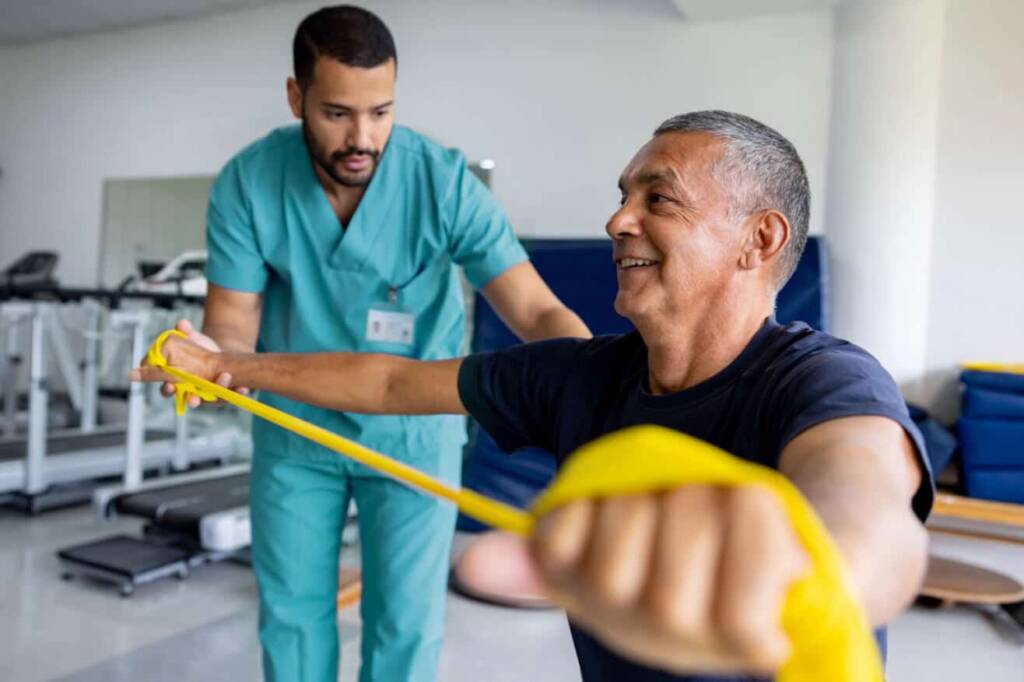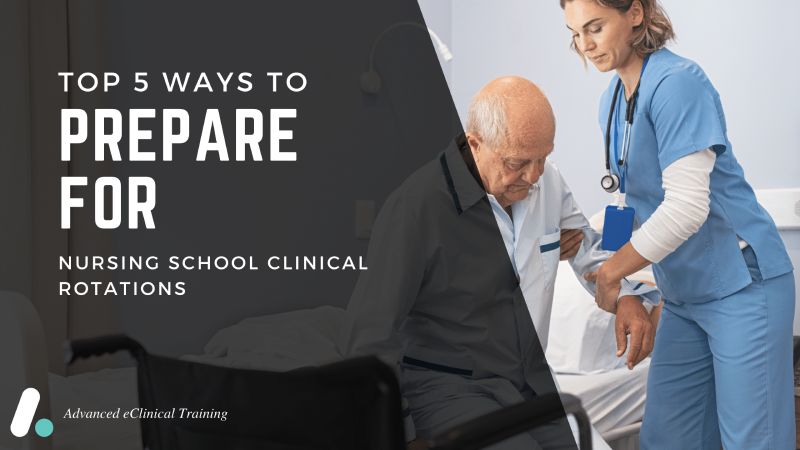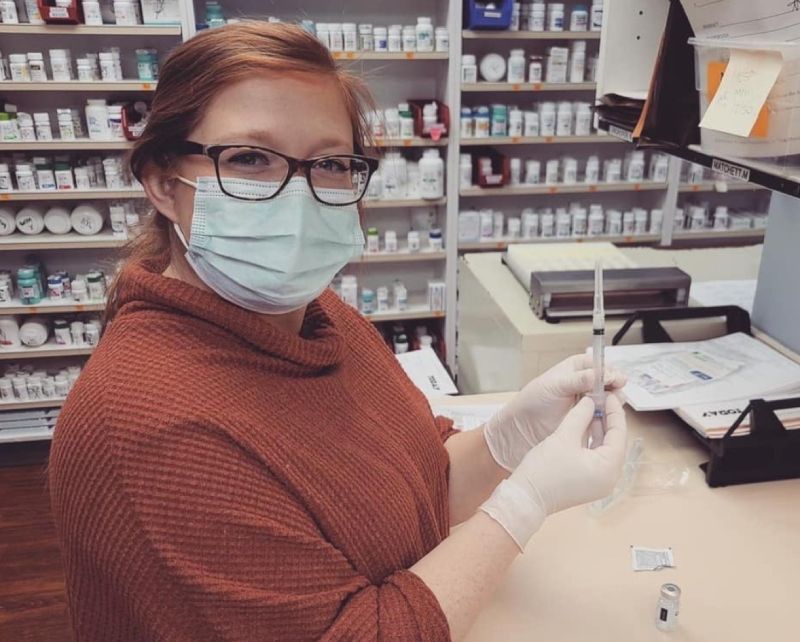Landing Jobs in Allied Health & How ACT Supports Career Growth
Allied health professionals are an integral part of the healthcare system, providing essential diagnostic, therapeutic, and support services that help patients maintain and improve their well-being. From medical assistants and pharmacy technicians to physical therapy aides and EMTs, these professionals work alongside physicians, nurses, and other specialists to ensure quality care across a variety of settings.
As the demand for healthcare services continues to grow, allied health careers offer promising opportunities for those looking to enter the field. Whether you’re exploring career options or ready to find your first role, understanding the qualifications needed for a career in allied health, what roles qualify as allied health professions, and how to find job opportunities can help you navigate your path with confidence.
What Is Allied Health?
Allied health is a broad category of healthcare professions — largely considered to be distinct from the fields of medicine, nursing, and dentistry — that encompasses roles focused on diagnostic, preventative, therapeutic, and rehabilitative services. These professionals play a crucial role in patient care, often working alongside physicians, nurses, and other medical specialists to support health and wellness.
Examples of jobs that allied health professionals hold include (but aren’t limited to) roles in medical imaging, physical therapy, occupational therapy, respiratory therapy, laboratory sciences, and nutrition. These roles frequently require specialized training, certifications, or degrees to ensure that patients receive high-quality care.
Allied Health Qualifications
To land a job in the allied health field, certain skills and qualifications are musts, though the specifics will vary depending on the role. In general, though, there are certain skills that are valuable to have across allied health roles. These include:
- Communication: The ability to clearly convey information to patients, families, and colleagues
- Empathy and Compassion: Understanding patients’ needs and concerns and offering emotional support
- Adaptability: The ability to stay calm and focused in unpredictable working environments
- Teamwork: Collaboration with physicians, nurses, and other colleagues to provide comprehensive care
- Problem-Solving: Involves critical thinking and developing solutions to complex healthcare challenges
- Time Management: Being able to manage multiple tasks efficiently
- Patient Interaction: Comfortably engaging with patients in a respectful and professional manner
- Technical Skills: These include role-based medical skills such as phlebotomy, EKG interpretation, medical imaging, etc.
In terms of experience, specific qualifications for allied health positions vary depending on the role and its level of seniority. While higher-level roles generally require several years of on-the-job experience, entry-level positions (such as medical assistant and patient care technician) may only require a high school diploma/GED and certification or licensure, depending on the state or healthcare system.
While clinical experience isn’t always needed for entry-level allied health positions, having some form of exposure to healthcare environments — whether through externships or volunteer work — on your resume can make your application stand out to hiring managers.
Key Allied Health Roles
The allied health field offers a wide range of careers, each with unique responsibilities and opportunities to contribute to patient care. These are some of the most commonly held roles:
Medical Assistant
Medical assistants play a vital role in healthcare settings,supporting physicians and other healthcare professionals by performing a wide range of tasks. Administrative duties, such as scheduling appointments and maintaining patient records as well as clinical responsibilities, like taking vital signs, preparing patients for exams, and assisting with procedures are all part of their day-to-day.
Patient Care Technician
Often found in hospitals and long-term care facilities, patient care techs are responsible for assisting with daily care needs, including bathing, dressing, feeding, and monitoring patient conditions. They may also help transport patients as needed and maintain cleanliness in medical environments.
Physical Therapy Technician
Individuals in this role work closely with physical therapists to assist patients in their rehabilitation journeys after surgery or suffering injuries. They prepare treatment areas, set up equipment, and help patients with the exercises or mobility tasks included in their recovery plans.
Pharmacy Technician
Pharmacy technicians support pharmacists by preparing and dispensing medications, managing pharmacy inventory, processing prescriptions, and providing customer service to patients. They may work in either hospital, clinic, long-term care, or retail pharmacy environments, ensuring medications are accurately distributed.
Athletic Trainer
These allied health professionals specialize in preventing, diagnosing, and treating sports-related injuries. They work directly with athletes at all levels — from high school players to the professionals — providing immediate care, rehabilitation, and advising on injury prevention techniques.
Dental Hygienist
Dental hygienists are responsible for cleaning teeth, examining patients for signs of oral diseases, taking x-rays, and providing education on oral care. They most frequently work in dental offices, providing preventative care and updating dentists on observations made during routine cleanings.
Emergency Medical Technician (EMT)
EMTs provide immediate medical care to patients in emergency situations. They assess patients in the field, administer first aid or CPR, stabilize injuries, and transport individuals to medical facilities for further treatment. EMTs often work in ambulances and emergency rooms.
Phlebotomist
Phlebotomists specialize in drawing blood from patients for diagnostic testing, transfusions, or donations. They ensure that blood is collected safely, labeled properly, and transported to laboratories for analysis. Phlebotomists typically work in hospitals, laboratories, and blood donation centers.
How to Find Allied Health Job Opportunities
Just like with any job search, finding the right opportunity in allied health involves a combination of knowing where to look for openings and leveraging various resources, such as:
- Job Boards: Both general (Indeed, LinkedIn, Glassdoor) and healthcare-specific sites (Health eCareers Network, Hospital Jobs Online, Advanced eClinical Training Career Center) allow you to filter opportunities by criteria such as location, job title, and experience level, making it easier to find roles that match your qualifications.
- Your University’s Career Office: Colleges and universities commonly have career centers that provide job placement services and resources for students and alumni.
- Healthcare Facilities’ Career Pages: Hospitals, clinics, and other healthcare centers often post job openings directly on their websites. This technique is particularly recommended if you’re targeting certain employers.
- Professional Network: Tap into your network of professional connections you’ve made, which can include professors; healthcare professionals you’ve met while volunteering, shadowing, or through work; or your peers to find opportunities.
5 Tips for Landing an Allied Health Role
Breaking into the allied health field requires a combination of education, experience, and strategic job searching. Follow these tips to make the most of your efforts:
1. Ensure Your Education Aligns With Your Career Goals
Different allied health roles require different levels of education. Whether it’s an associate’s degree, bachelor’s degree, or a specialized certification, make sure your academic background meets the requirements for your desired role. But before you begin a degree program, research the educational prerequisites needed for your target role and plan accordingly.
2. Pursue Certification
Many allied health positions require or strongly prefer candidates with industry-recognized certifications. Earning credentials such as certified medical assistant or certified pharmacy technician, for example, can make you a more competitive candidate. Check state and employer requirements to determine which certifications are necessary or beneficial for the field you’re targeting.
3. Gain as Much Clinical Experience as Possible
Hands-on experiences can give you a competitive edge when applying for entry-level positions. If your desired role requires clinical experience, seek out externships, shadowing opportunities, or volunteer work to satisfy the requirements. Even if clinical experience isn’t mandatory, having it on your resume can make you a stronger candidate.
4. Spend Time Polishing Your Resume
Your resume is often the first impression you’ll make on potential employers, and it’s in your best interest to make it a good one. Highlight relevant education, certifications, skills, and any applicable experiences in a quantifiable way to make your application truly stand out. And always tailor the content to each role you apply for.
5. Don’t Forget to Prepare for Your Interview
Be ready to discuss your qualifications, experiences, and passion for the role. Research common interview questions for allied health positions, and practice delivering your responses out loud — if you can find a friend or family member to run through a mock interview with you, even better.
ACT & Your Career Growth
Jumpstarting your career in allied health requires more than just the right education and experience — it also takes support. At Advanced eClinical Training (ACT), we provide the support you need to be successful in your chosen allied health career path by providing high-quality training courses, externship placements, mentorship, and career coaching.
- ACT offers industry-recognized certification programs designed to equip you with the skills and knowledge needed for success in the allied health field.
- As part of your certification course, you have the option to get placed in an externship at a local healthcare facility, so you can apply your learning in a professional setting.
- With ACT’s pre-health mentorship program, you’ll be matched with a practicing healthcare professional who will help you prepare for every aspect of getting into — and excelling in — the medical program of your choice.
- ACT goes beyond training by offering career coaching services, including resume review, personalized guidance, and job search resources.
A career in allied health offers a rewarding path with countless opportunities for growth, and the right training can set you up for success. ACT’s certification programs provide the education, hands-on experience, and career support you need to confidently enter the field. If you’re ready to take the next step toward a fulfilling healthcare career, explore our available courses and enroll to start building your future today.


